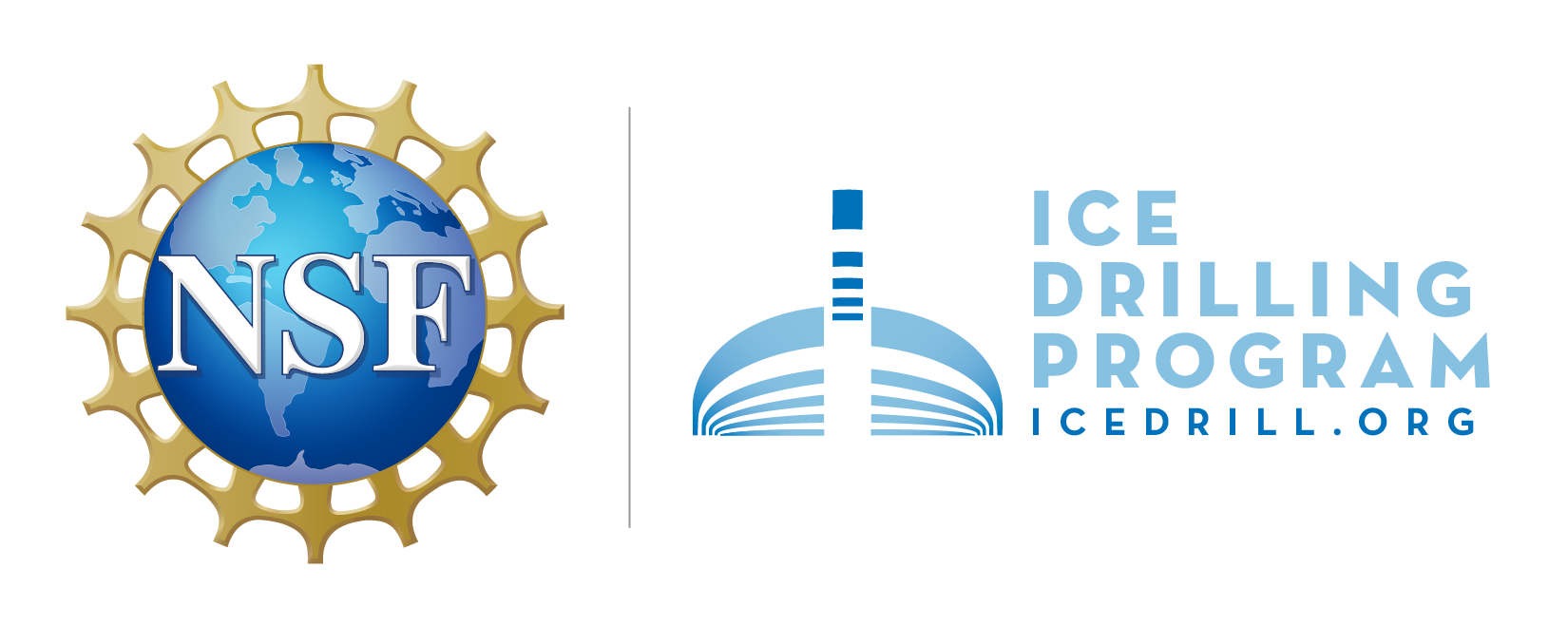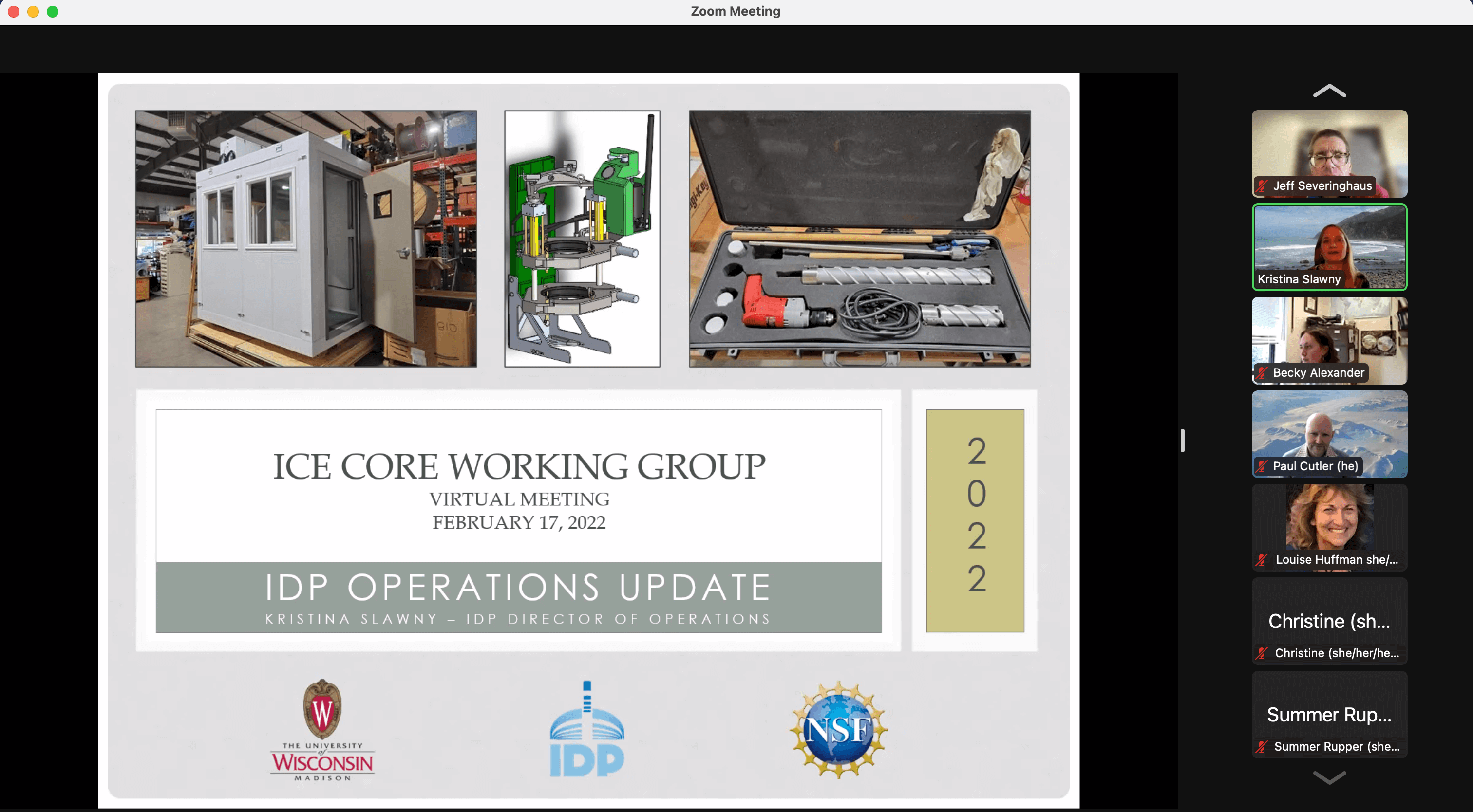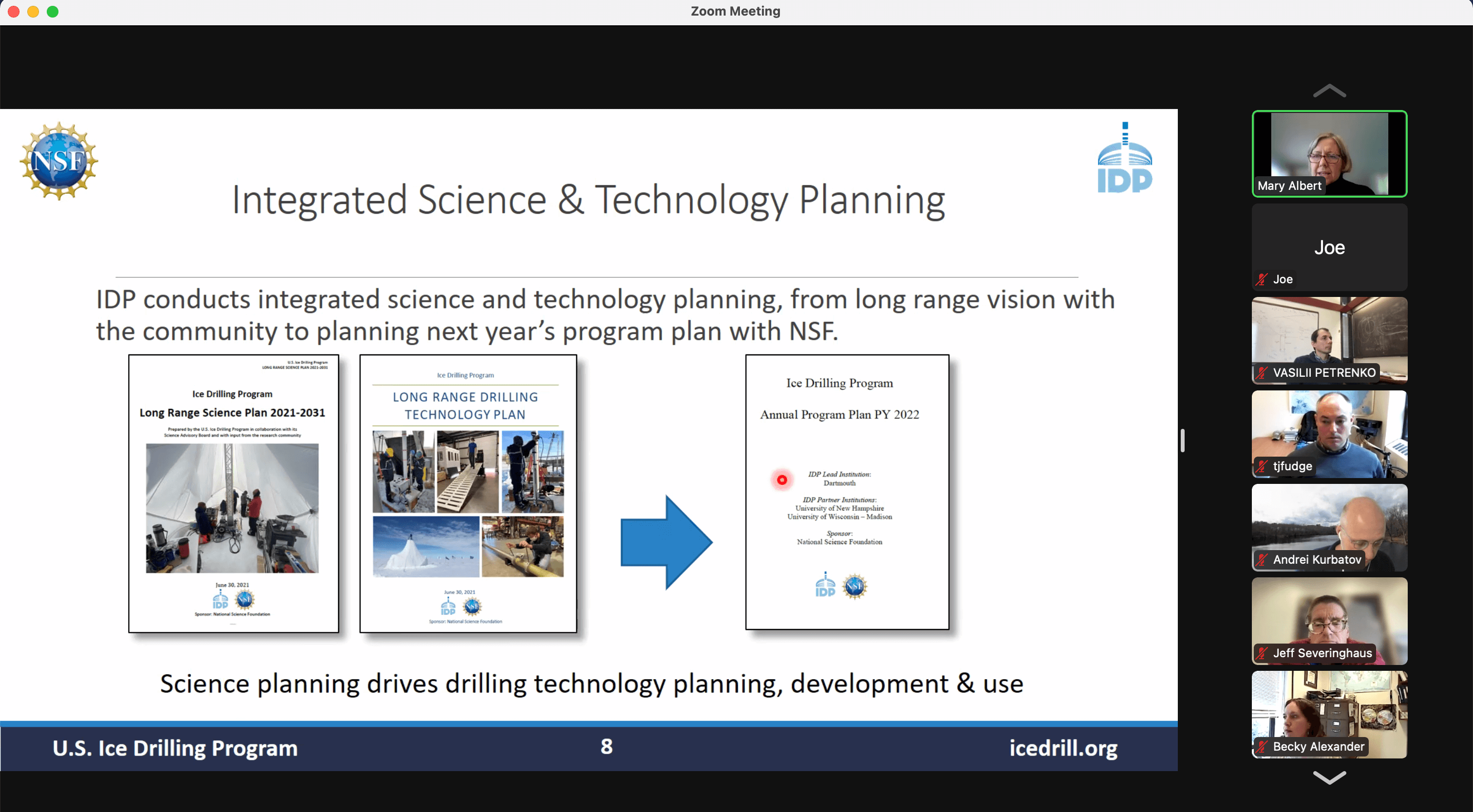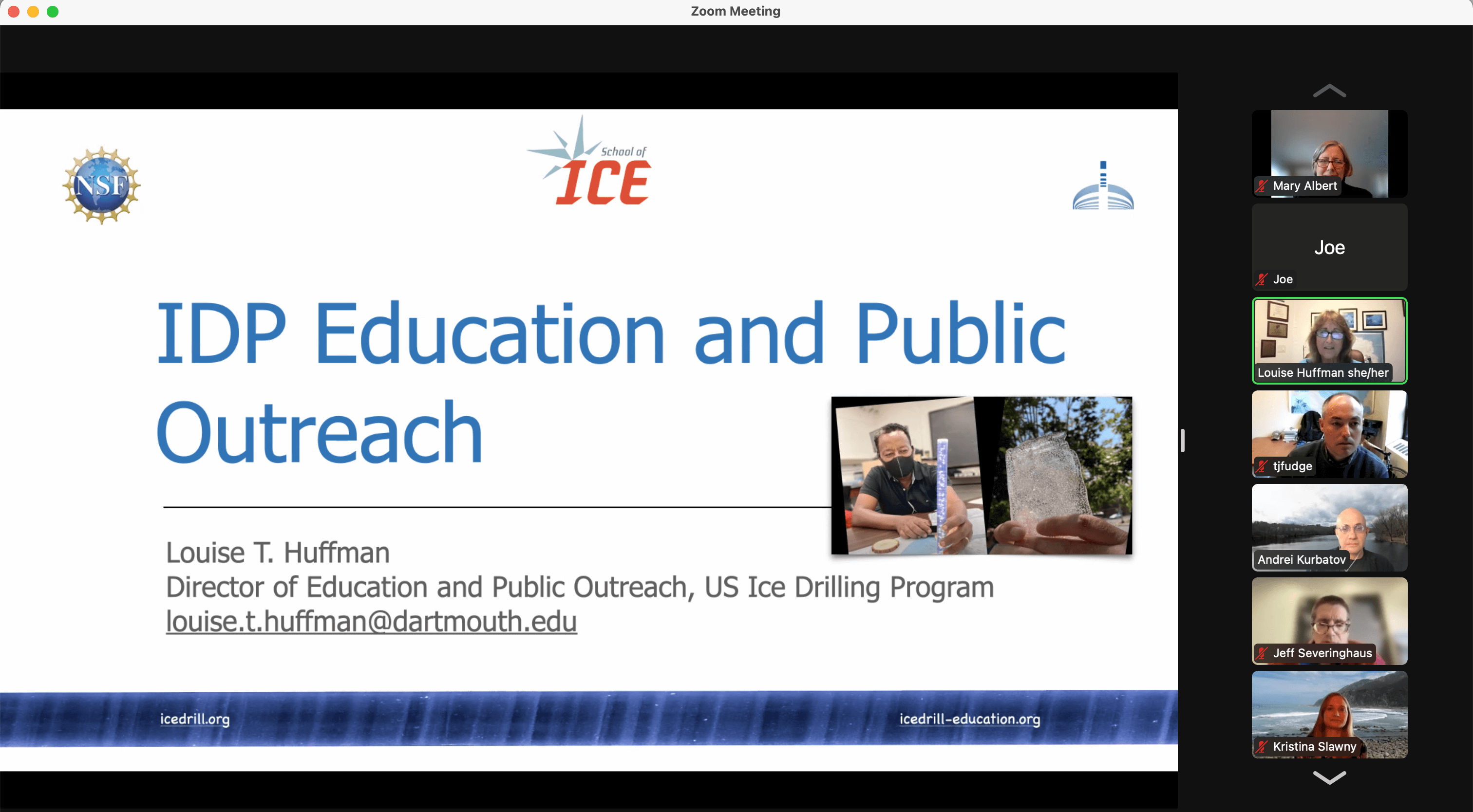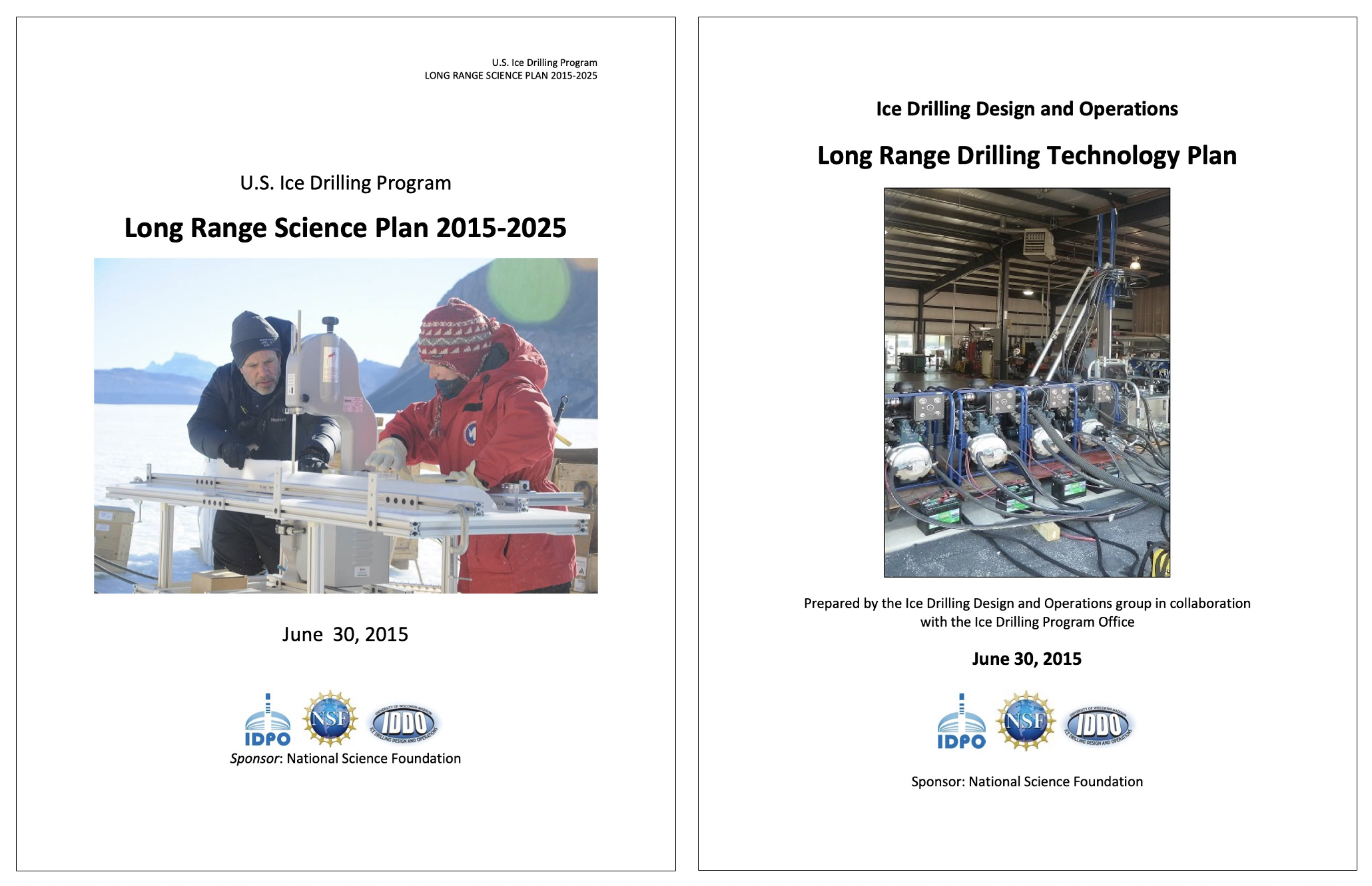Each year the annual update of the IDP Long Range Science Plan is finalized in June to include recent input from the IDP Science Advisory Board (SAB), the IDP Working Groups, and the research community at large; the SAB prioritizes items within the section on Recommended Technology Investments. In October 2025, the SAB revised the language in the June 2025 Long Range Science Plan on a priority item involving hot water drilling; it was revised so that it now reads:
- Describe/adapt the design and develop a cost estimate for the future build of a clean modular hot water drill (e.g. replicate the BAS modular drill for holes up to 3,000 m depth) that minimizes logistical footprint including fuel supply.
IDP engineers are currently working on this task. A paper on the BAS drill was published in 2020 by Makinson and others and can be downloaded from https://doi.org/10.1017/aog.2020.88. The updated IDP Long Range Science Plan can be downloaded from https://icedrill.org/long-range-science-plan. U.S. scientists who are interested in using a clean hot water drill to 3,000 m depth are invited to provide input to IDP on the draft IDP Science Requirements for a Deep Clean Hot Water Access Drill. Please send an email indicating your interest to Icedrill@Dartmouth.edu and we will follow up with you.
